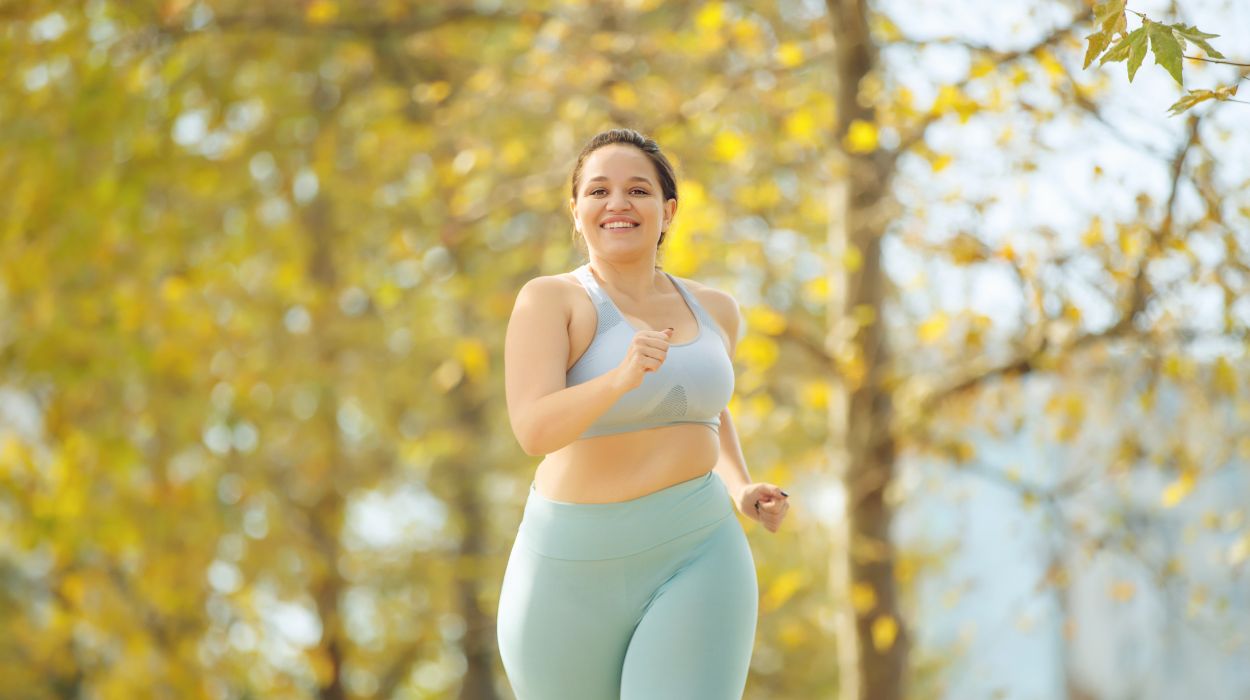People gain weight in several parts of the body, especially the stomach, arms, and thighs. However, there are times people gain a bit of fat in their cheeks, chin, and necks. This is called facial fat and can be caused by several reasons. In teenagers, facial fat can be caused by hormonal changes, genetics, diet, and lifestyle factors.
Many people wish to slim down their faces because it improves their appearance. While there are several slimming products on the market that claim to help lose face fat fast, teenagers can ensure safe, healthier, and long-term results by making changes to their diet and lifestyle.
As a teenager, are you struggling with excess facial fat and looking for tips to slim down your face? In this article, we provide you with effective ways on how to lose face fat. Teenager, we got you!
How To Lose Face Fat Teenager Fast
The following are strategies on how to lose face fat:
- Do facial exercises
- Add cardio to your routine
- Increase physical activity
- Drink lots of water
- Reduce alcohol consumption
- Improve your diet
- Get enough sleep
How To Lose Face Fat Teenager
People often gain facial fat when excess fat develops in other parts of the body. However, there are strategies that may help you lose face fat as a teenager. These include facial exercises, eating a balanced diet, drinking plenty of water, getting enough sleep, and a healthy lifestyle.

Do Facial Exercises
Facial exercises help strengthen and tone facial muscles while burning fat in your face. Studies show that performing facial muscle exercises 30 minutes daily can improve facial appearance and reduce cheek fullness.
You may try doing these facial muscle exercises:
- Puffing out your cheeks and pushing the air from one cheek to the other.
- Smiling when clenching your teeth for a few seconds.
- Puckering your lips on both sides of your face, one after the other for 5 seconds each.
- Chewing gum.
- Doing a nose scrunch.
Add Cardio To Your Routine
Usually, facial fat is linked to extra body fat so it’s recommended you perform exercises that will target fat in all parts of the body. Cardio, or aerobic exercise, increases your heart rate and enhances weight loss. If you exercise regularly but focus on strength training and weight lifting, incorporating cardio into your routine can help promote fat burning.
Example of cardio exercises include:
- Jogging
- Running
- Dancing
- Cycling
- Swimming
Increase Physical Activity
Wondering how to lose weight fast as a teen? Increase your physical activity levels. You may do this by taking part in sports and cutting back on device time.
Sports such as soccer, basketball, and volleyball, among others, help you burn calories and fat. They also help you build and tone your muscles. Building muscles help boost your metabolism which can also help in facial fat loss.
Cutting back on device time helps prevent a sedentary lifestyle. Staying glued to your smart phones and devices can make you physically inactive and prevent you from burning excess calories.
Drink Lots Of Water
Staying hydrated can help you lose facial fat. Studies suggest that drinking water makes you feel full for longer and promotes weight loss. Also, taking water instead of sugary drinks reduces your sugar and energy intake,[1] which are crucial to losing weight.
Dehydration causes fluid retention, making your face look bloated and puffy. Hence, drinking water can help prevent face swelling and improve your face and skin appearance.
The following tips can help you drink enough water daily:
- Set a daily water goal
- Use a water tracking app
- Carry a water bottle
- Flavor your water
- Eat water-rich foods
- Drink water with meals
Reduce Alcohol Consumption
Excessive alcohol consumption can lead to weight gain. Alcohol is rich in empty calories and offers no nutritional value. Hence, drinking large amounts of alcohol increases your calorie intake and makes you gain excess body fat.
Alcohol reduces the production of leptin,[2] a hormone that makes you feel full. Increased hunger makes you consume more calories, promotes weight gain, and face fat. Hence, alcohol should be taken moderately. According to the current Dietary Guidelines for Alcohol,[3] this means the daily maximum limit for men and women is two drinks and one drink per day, respectively.
Further, increased alcohol intake causes dehydration and fluid retention. This contributes to bloating and face puffiness. So, if you want to lose excess face fat and overall body fat, you will need to limit alcohol intake.
Improve Your Diet
A diet high in calories, fats, and sodium can increase one’s weight. Eating a healthy, balanced diet rich in vegetables, fruits, lean protein, whole grains, and fiber helps you get and maintain a healthy weight.
Cut down on junk foods, refined carbs and processed foods. Refined carbs contain empty calories and can cause a sharp increase in your blood sugar, making you overeat. Processed foods contain high calorie, salt, and sugar content and increase your risk of fat accumulation, weight gain, and obesity. Examples of food you should limit while trying to lose weight include white rice, pasta, white bread, sweet desserts, pastries, and most breakfast cereals.
While cutting back on carbs is an important weight loss strategy, it’s important to know how many carbs you should eat daily to lose fat effectively. Your daily carb intake depends on multiple factors, such as age, gender, activity level, body composition, and weight loss goals.
Adding fiber to your diet is another way to gain moderate weight and lose excess fat. Fiber helps make you feel fuller for longer, decreases appetite, and controls sugar cravings. So, it prevents overeating and promotes weight loss.
Diets rich in salt can also cause water retention. This results in puffiness and makes your face look fat. Reducing your sodium intake can help with your weight loss journey.
Get Enough Sleep
Getting adequate sleep is crucial to weight loss, and can help lose facial fat. Sleep deprivation contributes to increased cortisol levels[4] and production of the hunger hormone, ghrelin.[5] These all lead to weight gain, including face fat.
Poor sleep also affects metabolism, leading to fat storage in the face and other parts of the body. So, getting about 7-9 hours of sleep per night helps lose face and body fat.
Why Do Teenagers Have Face Fat?
Adolescence causes several changes in and to the body. During puberty, hormonal changes cause weight gain, including excess fat in the face. Other factors could be genetics, diet, and lifestyle habits.
Teenagers tend to eat more. Unfortunately, they eat more junk and processed foods. These foods are high in calories from sugar, fat, and sodium. Consuming excess calories can contribute to weight gain and facial fat.
Additionally, lifestyle habits such as excessive device use and gaming, smoking and alcohol intake usually form during adolescence. These contribute to an increase in overall body fat, making teenagers have face fat.
Poor sleep and increased stress levels can be linked to use of technology and nighttime activities such as chatting, gaming, and partying. Sleep deprivation increases stress levels, resulting in increased fat storage in different parts of the body, including the face.
How To Prevent Facial Fat
There are several healthy habits and lifestyle modifications that can help prevent weight gain and face fat. These include:
- Eating a balanced diet.
- Cutting back on refined carbs and processed foods.
- Exercising regularly.
- Drinking plenty of water and avoiding sugary drinks.
- Limiting your alcohol intake.
- Getting enough sleep.
- Managing your stress levels.
Conclusion
Facial fat loss is very possible. Limiting how much you take sugary drinks, junk foods, processed foods, and alcohol is an effective way to increase facial fat loss and maintain a moderate weight as a teenager. Additionally, cutting back on device time and participating in sports can help you live an active, healthy lifestyle.
For best results and how to lose face fat fast, combine eating a well-balanced diet, regular exercise, and healthier lifestyle changes.
Frequently Asked Questions
People begin to lose face fat as they age. You can begin to lose face fat as early as your mid to late 20s. Some others may notice facial fat loss in their 30s and 40s.
People usually begin to lose face fat as they age. Exercise and weight loss can also reduce excess facial fat.
How long a fat face lasts depends on several factors such as genetics, age, body composition, and lifestyle habits. If fat faces run in your family till old age, you most likely will have a fat face regardless of your age. An obese or overweight person will have a fat face and might only lose face fat if they lose weight.
Beauty, they say, is in the eye of the beholder. While the several kinds of cheeks are beautiful in their own ways, research suggests that full, perky cheeks are perceived as attractive. However, if they are too full and chubby, they may look less attractive.
Yes, you can perform face exercises every day. Doing facial exercise for a few minutes daily can help strengthen your face muscles and lose facial fat.
Smiling can help tone your face. When you smile, your facial muscles contract and relax, which in turn helps to tone and strengthen them.
 Expert's opinion
Expert's opinion
